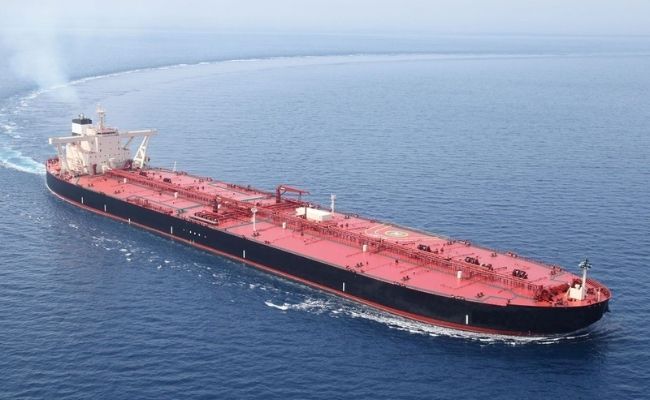Soon, it’s going to get a lot more difficult to get compensation for any damage caused by tankers carrying Russian crude.
Europe and the UK are large providers of marine insurance, as well as brokerage, finance, vessel classification and other services that make possible the movement of oil around the world. They are also home to many of the vessels that ply the trade. Greek companies are the world’s top tanker owners.
After Dec. 5, those vessels will no longer be able to carry Russian crude and the services won’t be available to any ship that does, European or not, unless the price paid for the cargo is below a still-to-be-decided cap. The bans will be extended to refined products two months later.
It looks very likely that most of Russia’s exports will be carried on its own ships, those of its remaining customers, or a growing fleet of aging tankers owned by little-known companies registered in jurisdictions not known for their openness or transparency.
Who will insure those vessels and what will that mean for potential claimants? Think of oil-related marine insurance claims and your mind might be drawn to the sinking of the Sanchi off the coast of China in January 2018 or, more likely, to the grounding of the Exxon Valdez off Alaska in 1989.
The sinking of the Sanchi cost insurers close to $200 million, a figure that was kept low because there was no shoreline pollution from the wreck. The Exxon Valdez disaster, which coated 1,200 miles of Alaska’s coastline with oil, cost its owner an estimated $3.5 billion before punitive compensation, of which $780 million was recovered from insurers.
But these big disasters make up a tiny proportion of claims in the shipping industry. Most are much smaller and generally go unnoticed outside the companies involved. How, or even whether, claimants will get paid for losses caused by a tanker carrying Russian crude are not clear. This should be a concern for every country whose ports or coastlines could be at risk.
Tankers carrying Russian crude aren’t likely to dock in “unfriendly” countries, but they will certainly pass close to their shorelines, whether that’s when exiting the Baltic through the Danish Straits or traversing the English Channel.
Russian oil tankers are now insured by Ingosstrakh Insurance Company, the country’s fourth-largest general insurer, which already covers some 2,000 vessels. It is also likely to cover much of the so-called “ shadow fleet” of tankers expected to continue carrying Russian crude next month. That’s raising concerns.
First revolves around the ability of the company to meet any really big claim resulting from the loss of a ship, with its cargo ending up washed ashore on beaches. If those beaches are, say, in the UK or an EU country, what is the likelihood that claims against the vessel’s owner or charterer will be successful?
A second question is, would Ingosstrakh be permitted by the Russian government to settle claims from “unfriendly” countries? And would companies or governments in those countries be able to receive payments from Ingosstrakh?
The EU sanctions ban provision of services, including insurance, in perpetuity to a vessel that carries a cargo of Russian crude purchased at a price above the cap. So owners, both current and future, would be accepting Russian cover for the rest of the vessel’s life, unless the sanctions are revoked.
India is willing to take that risk. Port authorities will accept liability cover for foreign ships provided by Ingosstrakh against risks, including oil spills and collisions. The company is among a list of 15 that aren’t part of the International Group of P&I Clubs approved by the Indian government.
China too, is likely to accept Russian insurance cover for tankers discharging at its ports. Both are likely to get paid in the event of making claims. But I’m not so sure that European countries, the UK, or the US will fare so well.


